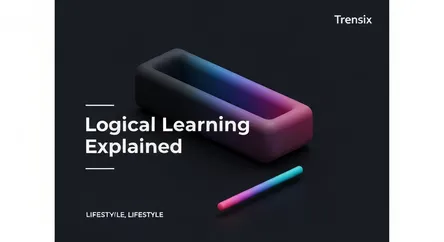Lifestyle
Logical Learning Explained

Explore logical learning, a method focused on understanding reasons and connections to boost critical thinking and problem-solving skills.
What is it?
Logical learning is an educational approach that prioritizes understanding the underlying principles, systems, and connections behind information. Instead of rote memorization, it focuses on reasoning and structure. A logical learner seeks to understand the 'why' and 'how' of a concept, connecting new information to existing knowledge to build a coherent mental framework. This method involves breaking down complex problems, identifying patterns, and using deductive and inductive reasoning to arrive at conclusions. It's about building a deep, applicable understanding rather than just retaining surface-level facts.
Why is it trending?
In an age of information overload and rapid technological change, the ability to think critically is more valuable than ever. Simple fact recall can be outsourced to search engines and AI, but logical reasoning remains a key human skill. Employers increasingly seek candidates who can solve complex problems, adapt to new challenges, and make informed decisions. Logical learning cultivates these exact abilities, making it a crucial tool for navigating modern careers and lifelong education. The focus is shifting from what you know to how well you can think.
How does it affect people?
Adopting a logical learning style empowers individuals to become more self-sufficient and adaptable thinkers. It enhances problem-solving abilities not just in academic settings but in everyday life, from financial planning to personal decisions. This approach fosters greater confidence when facing unfamiliar situations, as learners have the tools to analyze and understand new concepts from first principles. It leads to a more profound and lasting retention of knowledge, as information is integrated into a meaningful context, making individuals more innovative and effective in their chosen fields.